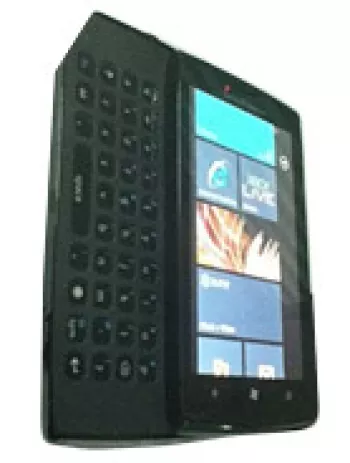Exploring Sony Ericsson J220 Specs Prices Pros & Cons

Introduction to Sony Ericsson J220
The Sony Ericsson J220, announced in November 2005 and now discontinued, was a feature phone emanating from the collaboration between Sony and Ericsson. This device was among the popular choices in its era, particularly valued for its durable build and straightforward functionality.
Network Capabilities
The J220 was designed to operate on the GSM network, specifically supporting GSM 900/1800 bands for the J220i model. While the phone lacked advanced connectivity features common in later models, it offered GPRS Class 8 connectivity, allowing for basic internet access through WAP 1.2.1. However, it did not support EDGE, limiting its capabilities in terms of data transfer rates.
Launch and Availability
Officially announced in November 2005, the Sony Ericsson J220 hit the market as a cost-effective option for users seeking basic mobile functionality. It has since been discontinued, marking its legacy as a handset from an era past, when feature phones were at the forefront of mobile technology.
Physical Design
The design of the Sony Ericsson J220 was compact and lightweight, measuring 102 x 44 x 18 mm and weighing just 82 grams. This made it a portable and convenient device for everyday use. The phone featured a Mini-SIM slot and came in two color variants: Smooth Black and Sky Blue, catering to a range of aesthetic preferences.
Display Characteristics
The display of the J220 was relatively small, with a 1.55-inch STN screen that could showcase 65K colors. The resolution was 128 x 128 pixels, providing a modest pixel density of approximately 117 ppi. The screen-to-body ratio stood around 17.3%, typical of feature phones of that time, reflecting the primary focus on functionality over form.
Memory and Storage
The J220 offered limited internal storage of 500 KB, which was typical for feature phones since they were not designed to store vast amounts of data or apps. It did not support expandable storage through a card slot. The phone could store up to 200 phonebook entries with picture call capabilities, allowing users to attach pictures to contacts. Additionally, it maintained records of 10 dialed, 20 received, and missed calls, thus providing an adequate call management system for its users.
Sound and Audio Features
Equipped with a loudspeaker, the J220 supported a variety of alert types including vibration and 32-polyphonic ringtones, along with a composer for creating personalized tunes. However, it lacked a 3.5mm headphone jack, a constraint for users favoring private listening.
Connectivity and Communication
In terms of connectivity, the Sony Ericsson J220 was quite basic. It did not support Bluetooth or WLAN, and it lacked any positioning or radio capabilities. There was no USB connectivity, which limited its interface with other devices, making it primarily a communication tool for calls and messages.
Feature Set
The features of the J220 focused heavily on communication. Messaging options included SMS, EMS, and MMS, accommodating basic text and multimedia messaging. The phone supported basic games, but did not include Java capabilities, reflecting its status as a feature phone rather than a smartphone. The absence of sensors further emphasized its simplicity and focus on primary mobile functions.
Battery Life
The Sony Ericsson J220 was powered by a removable Li-Ion battery, offering remarkable stand-by time of up to 280 hours and talk time of up to 6 hours. This long battery life was a significant advantage, allowing users extended use before needing to recharge, a crucial feature for mobile devices at the time.
Pricing and Market Position
With a price of approximately 50 EUR at the time of release, the J220 was positioned as an affordable mobile solution for individuals who needed reliable and straightforward communication. Its design and functionality targeted users who prioritized simple, efficient mobile communication.
Conclusion
The Sony Ericsson J220 is a testament to the era of feature phones, providing essential mobile communication features within a straightforward and durable package. Though lacking in modern-day smartphone features, its advent signified an essential step in mobile technology evolution, meeting the needs of users during the mid-2000s with efficiency and reliability.
Key Features of Sony Ericsson J220
- Lightweight design, weighing only 82 g (2.89 oz).
- Compact dimensions of 102 x 44 x 18 mm.
- GSM technology supporting 2G bands (GSM 900/1800).
- STN display with 65K colors for basic color visuals.
- Phonebook with capacity for 200 entries and picture call feature.
- Capability to store call records for 10 dialed, 20 received, and missed calls.
- Polyphonic ringtones with 32 tones and vibration alert support.
- Removable Li-Ion battery providing up to 280 hours of standby and 6 hours of talk time.
- Available in two colors: Smooth Black and Sky Blue.
- Affordable price point at about 50 EUR.
Disadvantages of Sony Ericsson J220
- No EDGE technology support
- Discontinued status
- STN display with low resolution and small screen size
- No external memory card slot
- Very limited internal storage (500 KB)
- No camera functionality
- No 3.5mm headphone jack
- Lack of modern connectivity options (No WLAN, Bluetooth, or positioning technologies)
- No radio functionality
- Basic WAP 1.2.1 browser
- No Java support









View Also
More Phones
All Rights Reserved +13924 Phones © Mobilawy 2025

























